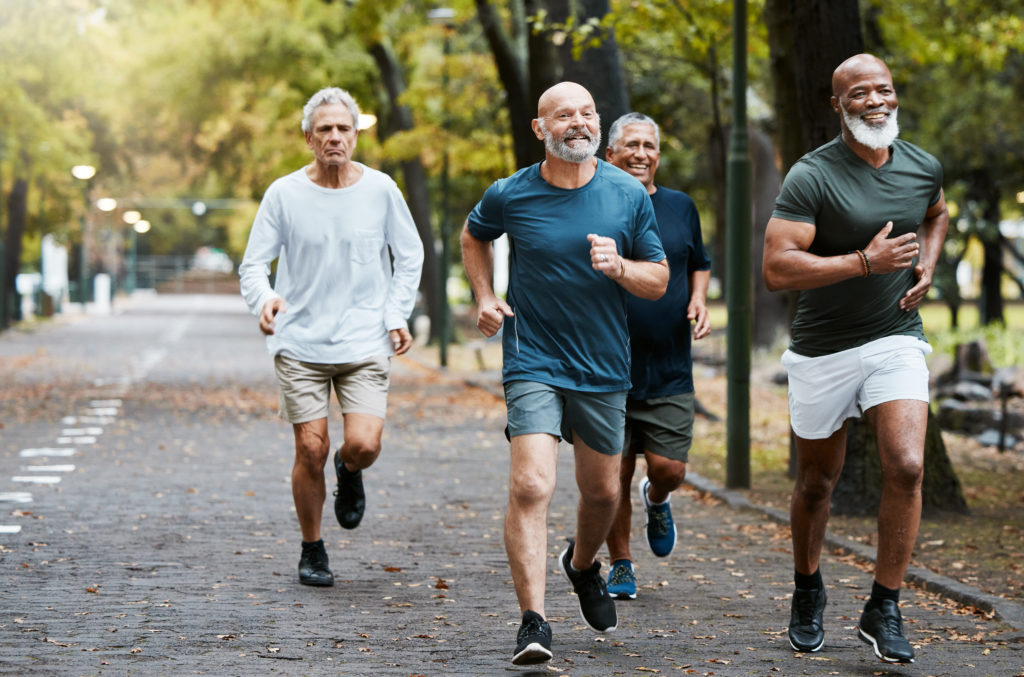Measuring Health
A large proportion of men tend to evaluate their health through a more physical perspective. FMCG Gurus’ consumer insights reveal that on a global scale, 60% of men measure good health by how fit and active they are. This indicates that there is less emphasis from men on internal aspects of health, such as emotional wellness and dietary habits. Internal aspects of men’s health should not be overlooked, therefore it is important that the health and wellness industry place more significance on addressing various areas of men’s health, such as their well-being and diets, in a manner that is relatable and appealing to male audiences.

Eliminating stereotypes
When it comes to mental and cognitive health for men, more must be done by the health and wellness market to address and eliminate certain stigmas, barriers and stereotypes. There is a need for more spaces in which social taboos can be addressed and eradicated. For instance, FMCG Gurus’ findings demonstrate that some of these barriers can be seen through the physical and financial pressures faced by men and a potential to feel inferior if men do not achieve often unrealistic goals, fuelled by social media. In addition, some other barriers faced by men involve a lack of resources for post-pregnancy, and less support around all areas of health, with a specific focus on mental health. As a result of these ever-present barriers and stigmas for men in society, the health and wellness market must be doing more to establish judgement-free support systems, resources and communities to support men’s health.
In some instances, the health and wellness market can be geared more so towards women. As a result, health and wellness brands should take more steps to advertise health and wellness in more of a neutral manner when it comes to age and gender. To do so, brands should aim to position health and wellness in a more inclusive, relatable light. Some ways that the market can do this is by using more prompts and products that are positioned around mental health, general well-being and reaching out during times of need.

Health Claims
Health claims with mood enhancing benefits and known for improving overall well-being are of high appeal to men. FMCG Gurus’ consumer insights highlight that globally, 50% of men like to see mood and overall wellbeing boosting health claims on food and drink products. Following this, 48% of men find claims which support digestive health on food and drink appealing. This suggests that men value multifunctional claims on products to address multiple areas of their health at once. If brands in the health and wellness market offer multifunctional, health-boosting food and drink, consumers will be more willing to pay a premium price, as they deem these products good value for money.
Rising Costs and Mental Health
In terms of mental health, societal pressures and barriers can result in men being less likely to seek out help. FMCG Gurus’ findings reveal that on a global scale, 26% of men are concerned that rising costs will impact their ability to manage their mental wellbeing and mood. It is important to note that of the different areas of health that men are concerned about amid the cost of living crisis, this was the highest. This illustrates that male consumers are concerned that rising costs will have a direct impact on their mental wellbeing, due to increased stresses and anxieties during this uncertain time. As a result, brands must facilitate affordable indulgences and external resources which promote and aid cognitive and mental wellbeing for men during this unstable time.